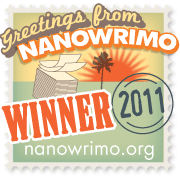When I was a kid I exasperated my grandmother, Memaw as she’s known to me as, with my “what if” questions. But what if the car breaks down? But what if it snows? But what if the boogey man really is under my bed? But what if, but what if, but what if? Sometimes she’d just tell me she was going to stop acknowledging me until I moved onto another topic. Today I don’t “what if” people to death like I used to when I was a kid, but I still dwell over my what ifs internally.
One Christmas when I was around 16-years-old, Memaw gave me the Stephen King book On Writing. Oh, you can’t imagine my delight when my eyes poured over a section where King himself talked about the importance of the “What if” questions.
What if a famous author is involved in a wreck, and is then rescued by his number 1 fan, who happens to be quite insane?
What if a teenage girl with raging telekinesis is bullied by her classmates?
What if a woman is handcuffed to a bed in a secluded cabin by her husband, who then dies leaving her stranded?
From these questions we get the novels Misery, Carrie, and Gerald’s Game.
These “what if” situations stem from King’s own dislike from plotting his writing before he begins to work on it. Now, I already knew that Stephen King was a genius with a super-human brain…but when I read this section of his On Writing book, I wanted to drop everything and kiss his feet.
I’ve never taken traditional writing classes, but I know in the screenwriting classes I have taken, it was drilled into our heads to plot out every single solitary detail of our work before we dove into writing it. This practice always made my brain feel like it was shrinking until it was completely void of thought. I never could plan out things worth a hoot, and in fact it seemed to stifle any work that followed.
Maybe it’s a flaw, I am not sure, but I like to just sit down and write whatever comes out and then go back later to try to work out plot holes or anything that may not make sense from beginning to end. I have tried to plot out a story before, and a few days into it I was feeling strangled by the whole thing, desperately trying to actually make it work but never really feeling satisfied with what I was typing.
Of course, everyone has their own method to their madness. What works for you may not work for me, and what works for me may not work for you. I do know that I don’t think I’ll ever stop asking the “what if” questions, whether my Memaw wants to listen to them or not. Who knows, my next “what if” may trigger something great!
What about you? Have you ever taken a “what if?” question and developed a story from it? Do you prefer planning everything out in advance, or just jumping in?



